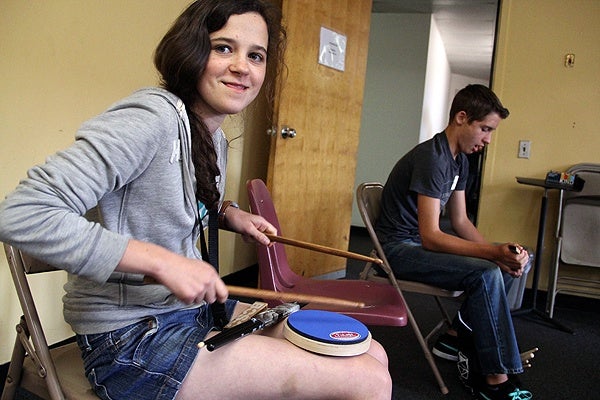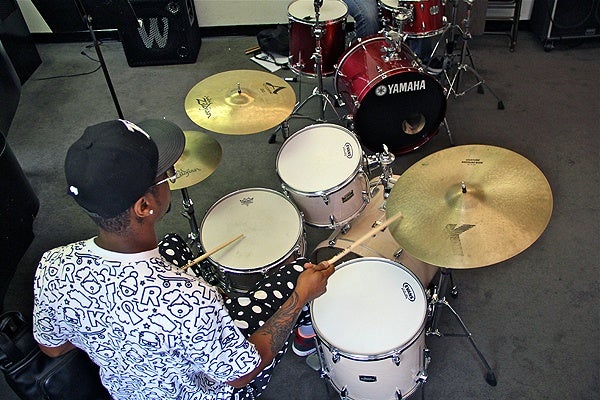Delaware crafts plan for health-care innovation
Delaware is looking for feedback on its plan to approach health care differently in the First State. The health-care innovation plan is a vision for transforming the state’s health system and the way providers are paid.
Encouraging doctors and others to adopt a “team approach” to medicine — to better coordinate patient care — is a core tenet of the draft.
That’s the way health care already happens at Westside Family Healthcare, says chief executive officer Lolita Lopez, one of the stakeholders who helped develop the new blueprint. Lopez says each Westside clinic is a “patient-centered medical home,” a policy buzz phrase that means the medical practice has adopted a team approach to care.
“On the team, for example, is a social worker who does an assessment with the patient. Then we find out there might be other factors that are affecting the patient’s health, and through the care coordination we help them navigate through the system,” Lopez said.
Patients work with a care coordinator who can make followup phone calls, arrange transportation, even track down test results after a patient visits with a specialist.
“So there’s a complete circle of care that closes the loop for when the patient returns back to the community health center,” Lopez said.
Believers have been preaching the benefits of team medicine for more than a decade, and there’s plenty of evidence that — when done right — coordinated care produces good results at a lower price.
Maximizing opportunity for team medicine
Lopez said the many practitioners in Delaware want to practice team medicine, but don’t have the resources to reorganize their offices.
“It’s not necessarily more money,” she said. “It’s a shift in maybe where resources go, there might be retraining of existing staff and giving existing staff new roles.”
Delaware won a federal health innovation grant of nearly $2.5 million from the U.S. Centers for Medicare and Medicaid Services to craft the vision document.
Many of the health-care ideas in the plan are not new — or innovative — but Lopez said securing the coordinated support to roll those ideas out statewide is.
Gov. Jack Markell’s health policy adviser Bettina Tweardy Riveros says there have been several innovative pilot programs in Delaware and many standout examples of delivering good care more efficiently.
“But there have been barriers to scaling that up,” she said.
If Delaware wins a followup grant to implement the vision plan, insurance companies would offer doctors and other care providers new ways to get paid, based more on health outcomes and less on volume.
Riveros says that switch would require a better focus on prevention.
“We have a fairly reactive health-care system,” Riveros said. “We do not proactively manage chronic disease. We have two-thirds of Delawareans who are overweight or obese. We have a very high incidence of diabetes.”
Health care costs more “when you don’t manage that on the front end,” she said.
Adopting a bit of rhetoric from U.S. Health and Human Services Secretary Kathleen Sebelius, Riveros said Delaware’s innovation plan has a “triple aim” — to improve the health of Delawareans, to improve the patient experience of care and to drive down health-care costs.
Laying out the case for a health system transformation, the draft writers argue that escalating health spending erodes income gains — for families and the state.
“Delaware spends approximately $8 billion annually on health care – 25 percent more per capita on health care than the national average,” according to the draft plan. “In the period from 1991-2009, per capita health care spending in Delaware grew faster than the national average at 6.2 percent per year versus 5.3 percent per year nationally.”
Integrating support services
In another part of the statewide plan, the architects hope to influences what happens outside the doctor’s office. Under that vision, community health champions would be appointed to different neighborhoods across Delaware. The facilitators would ask local residents what keeps them from being healthy, and what keeps them from seeing a doctor — and then try to figure out ways to reduce those barriers.
“Not just a referral system, but a true integration of the support services,” Lopez said.
No dates are set yet, but the health division is hosting town meetings in early fall to discuss the health-care innovation plan.
WHYY is your source for fact-based, in-depth journalism and information. As a nonprofit organization, we rely on financial support from readers like you. Please give today.










